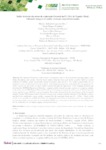Por favor, use este identificador para citar o enlazar este ítem:
http://www.alice.cnptia.embrapa.br/alice/handle/doc/1072677Registro completo de metadatos
| Campo DC | Valor | Lengua/Idioma |
|---|---|---|
| dc.contributor.author | SILVA, M. G. L. da | pt_BR |
| dc.contributor.author | CORDEIRO, T. F. | pt_BR |
| dc.contributor.author | OLIVEIRA, R. R. S. de | pt_BR |
| dc.contributor.author | NARVAES, I. da S. | pt_BR |
| dc.contributor.author | GOMES, A. R. | pt_BR |
| dc.contributor.author | ADAMI, M. | pt_BR |
| dc.contributor.author | FREITAS, L. J. M. de | pt_BR |
| dc.contributor.author | VALERIANO, D. de M. | pt_BR |
| dc.date.accessioned | 2017-07-13T11:11:11Z | pt_BR |
| dc.date.available | 2017-07-13T11:11:11Z | pt_BR |
| dc.date.created | 2017-07-13 | pt_BR |
| dc.date.issued | 2017 | pt_BR |
| dc.identifier.citation | In: SIMPÓSIO BRASILEIRO DE SENSORIAMENTO REMOTO, 18., 2017, Santos. Anais... São José dos Campos: INPE, 2017. | pt_BR |
| dc.identifier.uri | http://www.alice.cnptia.embrapa.br/alice/handle/doc/1072677 | pt_BR |
| dc.description | The Amazon Biome has a wide variety of ecosystems, such as: flooded forests, dry land, igapós, open fields, floodplains and cerrado. And for forest studies what has been used in the scientific field are several methods of satellites images classification based on textural characteristics. The texture characteristics are an important source of information for the analysis and interpretation process of products that are generated by optical sensors. In this work we show results obtained through the application of the mapping methodology developed by DETEX (Detection of Selective Logging) and the textural measures using a co-occurrence matrix, in the study area of FNT (Tapajós National Forest) in Pará, having as a temporal cut the years of 2014, before the forest exploitation and 2015, the year post logging. The results obtained from the fused images of the Landsat 8 satellite (Sensor OLI) demonstrated a relation between some textural variables obtained by the Haralick texture and the forest exploitation degree applied, measured by the remaining basal area (G - m²/ha) . Based on the results, it was possible to establish that before the logging the trees from the dominant extract were important in the detection result, whereas when some individuals (2015) were extracted, the dominant trees were fundamental for the verification of low impact logging activity in the forest | pt_BR |
| dc.language.iso | por | pt_BR |
| dc.rights | openAccess | pt_BR |
| dc.subject | Processamento de imagens | pt_BR |
| dc.title | Índice texturais das áreas de exploração florestal na FLONA do Tapajós (Pará), utilizando imagens de média resolução espacial fusionadas. | pt_BR |
| dc.type | Artigo em anais e proceedings | pt_BR |
| dc.date.updated | 2017-07-13T11:11:11Z | pt_BR |
| dc.subject.thesagro | Sensoriamento Remoto | pt_BR |
| dc.subject.thesagro | Textura | pt_BR |
| dc.format.extent2 | p. 3962-3969. | pt_BR |
| riaa.ainfo.id | 1072677 | pt_BR |
| riaa.ainfo.lastupdate | 2017-07-13 | pt_BR |
| dc.contributor.institution | Marília Gabriela Lopes da Silva, INPE-CRA; Tássio Franco Cordeiro, INPE-CRA; Rodrigo Rafael Sousa de Oliveira, INPE-CRA; Igor da Silva Narvaes, INPE-CRA; Alessandra Rodrigues Gomes, INPE-CRA; MARCO ADAMI, INPE-CRA; LUCAS JOSE MAZZEI DE FREITAS, CPATU; Dalton de Morrisson Valeriano, INPE. | pt_BR |
| Aparece en las colecciones: | Artigo em anais de congresso (CPATU)  | |
Ficheros en este ítem:
| Fichero | Descripción | Tamaño | Formato | |
|---|---|---|---|---|
| sbsr59804.pdf | 636,37 kB | Adobe PDF |  Visualizar/Abrir |









